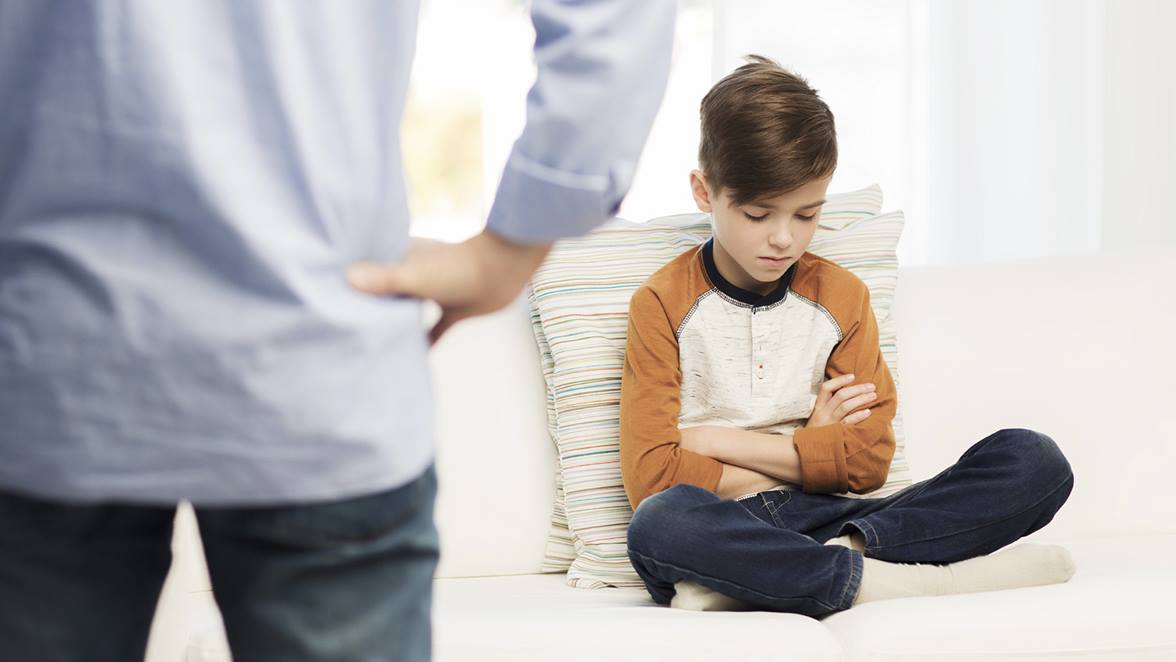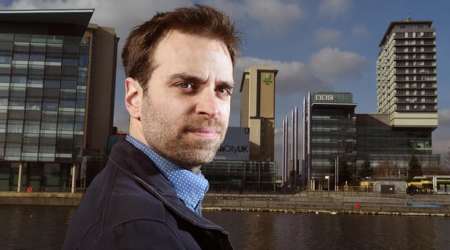These parents of children with ADHD have been through it all. Check out their takes and what the experts have to say about this difficult situation.
The challenges parents face
It isn’t easy to parent a child with attention deficit-hyperactivity disorder (ADHD). When the child misbehaves, strangers can feel justified commenting or offering advice. Even friends and family may criticize a parent’s choices. (Check out the ADHD myths people still get wrong.)
These quotes from parents of kids with ADHD will make you rethink parenting. Mark Griffin, PhD, an Understood.org expert and a former headmaster of a school for kids with learning and attention issues, offers a professional’s take on these trying situations.
ADHD is “invisible” to outsiders
“The hardest thing about ADHD is that it’s ‘invisible’ to outsiders. People just assume that we are not being good parents and that our child is a brat, when they don’t have an idea how exhausted we truly are.” —S.C.
Dr. Griffin: The signs and symptoms of ADHD aren’t always visible, which is why people should pause before drawing conclusions about kids’ behavior. Here are some myths about ADHD you still get wrong.
Scolding a child with ADHD won’t work
“The way I handle my child’s behavior may look permissive to you, but constantly scolding does nothing but hurt self-esteem. I know what I’m doing and I don’t need an onlooker’s approval.” —B.P.
Dr. Griffin: There are ways to get a child with ADHD to listen without yelling. Parents have to find the right strategies to help their child with ADHD follow rules and stay on track, and it makes no sense for others to judge.
Smart kids with ADHD still need help
“Having a high IQ or being intelligent does not mean ADHD is not a disability.” —Y.T.
Dr. Griffin: The notion that a ‘bright’ child won’t experience difficulties because of ADHD has been proven incorrect by research.
It takes time to understand an ADHD child
“Even close family members don’t understand. They think that my daughter is just spoiled. They don’t spend countless hours reading and researching and trying different things to find what works and what doesn’t.” —C.A.
Dr. Griffin: Parents must adopt new strategies because parenting kids with ADHD requires a proactive style that reflects the child’s strengths and issues. (Learn about ADHD parenting strategies you can use at home.)
You might mistake these conditions for ADHD.
Medication is a personal choice
“When people learn that our eight-year-old is medicated, you can just see the judgment in their eyes. It was not an easy choice to make.” —L.S.
Dr. Griffin: Some children clearly can benefit from ADHD medication could be helpful. For others, it’s not so obvious—and treatment and intervention plans for children with ADHD are the sole decision of the child’s parents and their team of professionals. Here’s a guide to ADHD medications.
Parents can choose not to medicate
“I understand you can be judged if you put your child on medication. But we’re judged by some because we have chosen NOT to medicate.” —G.P.
Dr. Griffin: ADHD medication isn’t right for every child. There are a number of children with ADHD whose intervention plans focus on alternative ADHD treatments. It’s important that parents are comfortable with their decision-making, monitor the treatment plan, and not be influenced by uninformed criticism.
ADHD isn’t about just hyperactivity
“I wish people simply knew that ADHD is so much more than just ‘being hyper.’” —S.S.
Dr. Griffin: Actually, studies suggest that some children with ADHD have no symptoms of hyperactivity. Others are inattentive but not impulsive. A good number of kids have a combination of inattention and hyperactivity or impulsivity. Some comments are just not helpful to parents of kids with ADHD. (Here’s what not to say to parents of kids with ADHD.)
ADHD isn’t a “phase”
“Kids won’t ‘outgrow’ ADHD. They will learn to cope with it and accommodate it with A LOT of hard work on their part and my part.” —H.C.
Dr. Griffin: ADHD symptoms can and often do change as children get older. However, it’s important to note that ADHD doesn’t go away just because its symptoms become less obvious. Kids must learn skills and strategies to manage their condition, and often parents are their first teachers. Here are some symptoms of ADHD in adults.
A passing grade can mean a lot to a child with ADHD
“Kids with ADHD have to work very hard to achieve a grade most would consider mediocre. When I congratulate my son for getting a 75 (and of course discuss why he got the answers wrong that he did), it’s because I know the hard work it took to achieve that passing grade.” —M.A.
Dr. Griffin: Some kids with ADHD need to work very hard just to stay afloat in school. Homework and academics can be a real challenge. Just because a child didn’t do well doesn’t mean the child isn’t working hard. (Find out how to help your child with homework.)
But some kids with ADHD excel in school
“Yes, my son scores well on multiple-choice exams and can regurgitate information like a scholar. But he still has trouble remembering to do simple things like pack his lunch!” —S.B.
Dr. Griffin: Most kids with ADHD have executive functioning issues. They may forget to do simple things. It takes intentional planning like rethinking some of the ways we parent and modifying those interventions when appropriate.
Kids with ADHD can have great gifts
“Kids have a lot of gifts from their ADHD: Unending creativity, thinking outside the box, energy, enthusiasm and passion about their interests.” —C.J.
Dr. Griffin: Giving kids an opportunity to use and strengthen their talents and interests is critically important for their success and self-esteem. Parents need to create the right interventions to help kids deal with symptoms. (Learn how to encourage your child every day.)
We know more about ADHD today
“Just because you didn’t see these disorders when you where growing up doesn’t mean they weren’t happening. Kids with ADHD then were just called ‘awkward’ and ‘a handful.’” —L.W.
Dr. Griffin: Our understanding about ADHD has come a long way in the last few decades. People should be open to new research about ADHD and the brain and what it means for kids.





